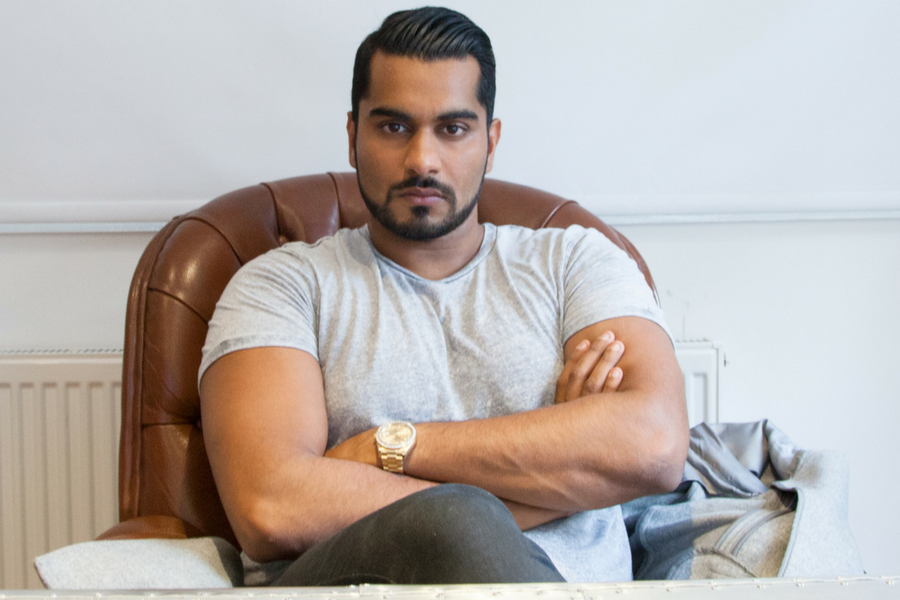Australia’s love for online shopping is renowned worldwide. According to NAB’s latest Online Retail Sales Index (NORSI), online spending grew by 13.5 percent in the 12 months to June 2016, with consumers spending an estimated $20.1 billion on goods and services over the last year.
According to the NORSI, online spending is dominated by consumers aged 35 to 44, no surprise given they have more disposable income to spare, but 18 to 24 year olds are also splashing the cash, with 22 percent spending on fashion and just under 20 percent spending on media.
This fashion spending has been pushed by both homegrown and international players, from Showpo and The Iconic to ASOS and shows no signs of letting up, with another international business recently announcing its local launch.
Manchester-based startup Pretty Little Thing was launched in 2012 by Umar Kamani, who grew up surrounded by fashion; his father is the founder of online fashion retailer Boohoo.com. Despite the success of Boohoo and the fact that online fashion is rather a crowded market already, Kamani said he saw space for a new player and was in fact inspired by his father to go about building a new brand.
Pretty Little Thing’s target is a ‘feminine’ and ‘sassy’ 16 to 24 year old woman who is inspired by celebrity and blogger culture. As the brand explains it, she wants the latest trends at the very best prices, she wants them now, and she wants to share her looks with her friends and social networks. The prices are low: tops start at $4, dresses from $12, coats, knitwear, and jackets from $20.
“We see ourselves as an interactive, celebrity focused, fast fashion brand. Affordable fashion is what we do but the customer experience is so much more. She can read about her favourite celebrity and then dress like her at an affordable price. We have our own identity and our demographic is heavily influenced by the fast pace world of celebrity and fashion; we base our business model around this,” Kamani explained.
Like any good business, Kamani said Pretty Little Thing’s customers have built and moulded the company into the slick brand it has become.
“We started it so open minded and wanted our customers’ input. We listened to what they wanted and slowly realised it wasn’t just about a shopping website, she wanted to visit us for celebrity gossip, fashion advice and to really interact with us which is exactly what we’ve built for her. That is the beauty of Pretty Little Thing – it’s what she has created.”
The concept of fast fashion isn’t new – it’s how the likes of H & M and Zara operate, introducing new styles every couple of weeks. While some retailers operating in the fast fashion space are manufacturing in Asia with workers being subjected to unethical conditions, however, Pretty Little Thing largely manufactures in the UK. Kamani said this choice was made as working with local factories means shipping, returns, and other processes are speedier, while working within the same time zone also makes communication a breeze.
What fast fashion means for Pretty Little Thing, Kamani explained, is having to be “extremely hands on” with processes stripped back.
“With Pretty Little Thing, if we need something in, we get it manufactured at a speed no other business can compete with. We have an incredible in house design team who always look at the latest trends celebrities are wearing who are able to use this as inspiration and give the customer exactly what she wants. We show her how to build the look of her favourite celebrity. If Kylie [Jenner], for example, is wearing something one day, we try and make sure it’s available to her straight after,” Kamani said.
The fact that these style inspirations live their lives on social media, broadcasting to a global audience, means that Pretty Little Thing too has been able to build outside the UK, with 15 percent of sales coming from international markets.
Kamani said the company saw Australia as a perfect market for expansion due to both existing organic growth of the brand and the fact that he also experienced firsthand success in Australia through other family businesses.
Despite the number of online fashion retailers working across Australia and their growth on social media – Showpo’s rise in particular was famously fueled by social – Kamani believes Pretty Little Thing will be able to stand apart. He believes affordable fashion brands are limited in the market, while the company’s focus on social media and tapping into celebrity trends on social networks means it’s more than just fashion. Pretty Little Thing is also one of the few big brands in the space to design and manufacture itself rather than buy.
Since its local launch in May, Kamani said Pretty Little Thing will be looking to further develop its presence in Australia and expand its offering.
Image: Umar Kamani. Source: Supplied.




















Trending
Daily startup news and insights, delivered to your inbox.